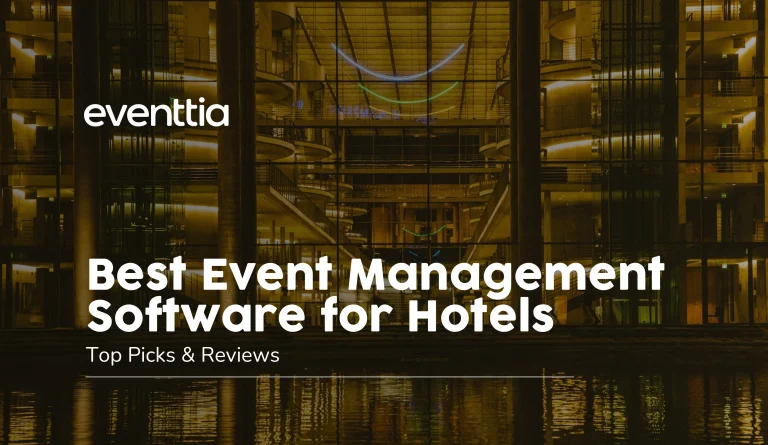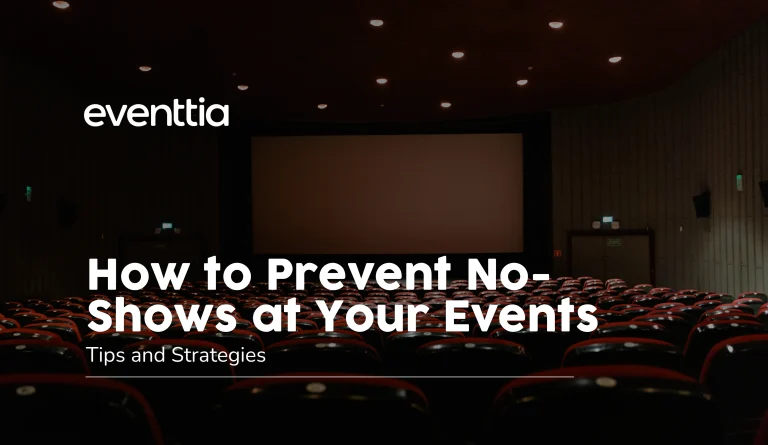Are you currently planning an event but are not sure about whether you should get event insurance?
You’ve come to the right place.
In this guide, we will discuss all you need to know about event insurance, and we’ll cover:
- The concept of event insurance
- Why your event needs event insurance
- Different types of event insurance
- The cost of event insurance
- How to file a claim when things go awry
- Obtaining certificates of insurance for the event
And more.
Without further ado, let us begin with the basics: what is event insurance?
What is Event Insurance?
Event insurance is an umbrella term covering all kinds of insurance that provides liability coverage for an event. Insurance companies may sell their own event insurance product, but basically, any type of insurance covering different aspects of an event can be categorized as event insurance.
The most basic type of event insurance is general liability, which is designed to protect the event organizer and all other insured parties for any accidents within the realm of the venue and any vendors involved in the event that is outside the control of the event organizer.
If you are hosting an in-person event and are looking to rent a venue in the US, most physical venues will require general liability insurance that covers at least $1,000,000.
However, the venue and other vendors involved in the event may also require additional insurance coverage beyond the general liability insurance. It’s also worth noting that depending on the type and nuances of your particular event, you may also need to get specific insurance coverages.
As you can see, there’s no one-size-fits-all answer to the question, “what kind of event insurance should I get?” and it will depend on many different factors.
Why Do You Need Event Insurance?
Planning and hosting an event, by nature, are volatile. Event planning always involves many different moving parts, and almost all events don’t go according to plan.
After carefully planning your event, the last thing you want is for unexpected accidents to ruin the whole event and ruin yourself (financially or otherwise) as an event organizer.
What kinds of mishaps can you expect at an event? Actually, there are so many possibilities, but here are just a few examples:
- Attendees could be sick or injured during the event and directly or indirectly caused by your event. For example, they may experience food poisoning due to your caterer’s carelessness.
- Accidental damage to the venue, for example, when a rented speaker you’ve installed on the venue falls and breaks the flooring.
- Force majeure like severe storms or earthquakes that force you to postpone or cancel the event (and you’ll need to refund your attendees’ tickets.)
- Your speakers or your presenters could not be at the event for one reason or another or are sick/injured during the event, forcing you to postpone the event.
As you can see, there are literally endless possibilities of bad things that could happen in an event. Yet, these examples are not here to scare you but to show you the importance of purchasing the right event insurance.
Of course, we hope to never use the insurance even after purchasing them, and we’d like our events to succeed. However, as the old saying goes, it’s better to be safe than sorry later.
Preventing Accidents and Injuries
While, as discussed, there are insurance policies that will cover injuries and illnesses caused by the event, it’s best to be proactive and implement adequate health and safety policies in your event planning.
For example, ensure employees and volunteers responsible for A/V equipment installation are protected with appropriate protective gear.
If even after all the best practices you’ve established, accidents still happen, this is where event insurance can protect you. Make sure to keep a comprehensive record of anything relevant to the incident, and report the incident to your insurance provider as soon as possible.
What Types of Insurance Do You Need For an Event?
Now that you’ve understood the importance of purchasing event insurance to protect yourself and your business as an event planner, what types of insurance should you purchase?
With so many different options available from many different insurance companies, buying the right event insurance for your event can be quite a daunting task.
Below, we will discuss some of the most important types of event insurance available to help you make a better-informed decision regarding your purchase.
Based on types of coverage
Most event insurance options offer two main types of coverage: covering liability or covering cancellation:
1. Event liability coverage
This type of insurance coverage will cover yourself and/or your business when you are held liable for property damage or sickness/injury of anyone involved in the event (i.e., staff, volunteers, attendees, etc.
For example, if your staff accidentally cause damage to the property, liability insurance coverage would pay for this damage.
Most event venues would require some form of liability insurance before you can rent them for an event. Also, if your event is going to serve alcohol, you may be required to get additional liability coverage for alcohol-related incidents.
2. Event cancellation coverage
Due to various reasons, some of which we’ve discussed above, you may need to postpone or cancel the event.
Cancellation may cause you financial damages in one way or another. For instance, you may need to refund the purchased tickets, and there may be non-refundable fees and deposits you can’t recover.
In such cases, this type of event insurance coverage will reimburse you if you need to postpone or cancel the event up to the policy’s coverage limits.
Here are some examples of situations that can be reimbursed by event cancellation insurance:
- Speakers/presenters/talents not showing up due to travel delays
- Vendor no-shows (i.e., bankrupt vendors)
- Unexpected injury/sickness/death to anyone involved in the event
- Catastrophic weather
- Spoiled food
- Military/war situations
- Goods or services that failed to arrive in time for the event (i.e., A/V equipment, decoration)
Depending on the insurance product, it may also cover professional counseling if anyone involved in the event suffers emotional and/or traumatic stress from the cancellation/postponement.
Other types of event insurance you should know
1. Worker’s compensation insurance
If you are hiring any staff or volunteers to work on the event, then you may be required to get worker’s compensation insurance. Most states in the US require this type of insurance.
Even if it’s not a legal obligation for you to get worker’s compensation insurance, we’d still recommend getting one, so you can protect employees and volunteers from any injuries/illnesses that might happen while they’re working on the event.
Worker’s compensation may fully cover or at least offset the cost of medical benefits due to this sickness or injury. In a worst-case scenario, you as an event organizer may be required to pay the employee for the rest of their life for permanent injuries sustained on the job.
2. Subrogation/waiver
The venue or other vendors may also ask you to provide a subrogation or waiver before you can purchase their goods or services.
A subrogation will cover the vendor in the event of unwanted incidents, so your insurance company won’t be able to ask for money from the vendor or venue, even if the damage is directly caused by the vendor.
A waiver of subrogation may also help cover any losses or damage done to any rented or borrowed equipment. However, it may not cover the full cost of the equipment. Make sure to read the fine print of the waiver carefully to confirm what is covered by the policy.
3. Third-party damage insurance
This type of insurance covers any property damages made to the venue and related equipment during the event. Stains or spills to the venue carpet, as well as broken tables, are some examples of damages that are covered by this type of insurance.
4. Hired auto liability insurance
This type of insurance covers any damages or losses caused to any rented (non-owned) vehicles for the event. Depending on the insurance company, this type of insurance may also cover related injuries to the vehicle’s driver or any damages (i.e., property damages) caused by the vehicle.
5. Liquor liability insurance
We’ve briefly discussed this type of insurance above. If you are going to serve alcohol at your event, you may be legally required to purchase liquor liability insurance.
This type of insurance will cover any damages and injuries/illnesses related to alcohol, including situations when a bartender unknowingly serves alcohol to minors.
Depending on the insurance company, liquor liability insurance may also cover situations like when attendees leave your event intoxicated and drive their car home (driving under the influence.)
Basically, if you are planning to serve alcohol as a part of your event’s catering, then this type of insurance is a must.
6. Terrorism insurance
This is, unfortunately, a relatively unpopular type of insurance, but depending on your location and the type of event you are going to host, among other factors, terrorism insurance can be crucial.
As the name suggests, this insurance policy will help cover yourself and your event in the event of any act of terrorism affecting the event.
7. Equipment coverage
Depending on the type of event you are going to host, it may involve expensive purchased/rented equipment.
It’s always worth taking out insurance to protect your equipment against loss, theft, or damage. Especially if you are renting your equipment, it’s highly recommended to purchase event equipment coverage that includes rented/hired equipment.
Getting a Certificate of Insurance
If event insurance is a legal requirement and/or is required by your vendors, then you may need to obtain a certificate of insurance from the insurance company where you purchase your policy.
Most event venues and vendors will ask for a certificate of insurance before you can do business with them, so make sure to obtain a certificate of insurance to prove that your event is adequately covered.
How To File a Claim
Accidents do happen, so what should you do in the event of a claim?
As a general rule of thumb, you should attempt to contact your insurance company (or agent) as early as possible, not more than a few hours after the incident in question.
However, before making the call, make sure to acquire all the necessary information that may help streamline the claim process, including but not limited to:
- Your name/business name
- Full contact information
- Insurance policy number
- Type of coverage
- A description of the accident, along with proof you can provide
- Have the insurance contract ready
It’s crucial to keep a comprehensive log of the incident: the more details you can capture, the more likely the claim is going to be approved. Also, in the event you are taken to court, this record can be a great help.
Will Event Insurances Cover Any Events?
With a wide variety of insurance companies available in the market, virtually you can find coverage for most types of events.
However, there are some types of events that insurance companies tend to avoid covering, for example:
- Hot air balloon events
- Boating events
- Aircraft shows
- Haunted houses
- Extreme sports events
- Motorized sporting events
So, depending on your event type, check out the details in the insurance policy before you purchase one. This is to ensure you understand exactly what is and isn’t covered by the policy.
Due to the global pandemic situation, some insurance companies may also exclude coverage due to infectious diseases (including COVID-19.) For example, postponement or cancellation due to COVID-19-related issues is not likely to be covered.
When Should You Buy Event Insurance?
The ideal answer is as early as possible in the event planning cycle. Depending on the type of insurance policies and the insurance company you are dealing with, you may be able to purchase event insurance up to two years before the D-day of the event.
Most insurance companies nowadays are also pretty versatile, so if you just realized that you need additional insurance and your event is close, then you may buy it just days or even the day before the event.
In general, however, the earlier, the better.
Before committing to a venue, ask whether they’ll require you to purchase liability insurance in case of injuries and/or property damages, and also ask your vendors whether they already have liability insurance so you don’t over-insure the event.
How Much Will Event Insurance Cost?
The answer to this question will vary depending on many different factors.
There are, however, reliable insurance companies that offer liability coverage starting at under $100. Yet, generally, the more expensive an event costs, the more expensive you’ll also need to pay for insurance.
The final cost of your insurance will ultimately depend on factors like the number of attendees, the duration/length of the event, and the overall investment of the event.
Wrapping Up
If you are planning an event with substantial financial obligation and/or risk involved, then ideally, you should invest in appropriate event insurance to protect yourself and your business as an event organizer.
It’s virtually impossible for any event to go 100% according to plan, and you should expect the unexpected. On the other hand, most vendors don’t offer full refunds for postponements or cancellations, and most event venues are no longer willing to take sole responsibility for damages to the property.
In such cases, getting event insurance can give you peace of mind, so you can concentrate on the things that matter more: planning and hosting a successful event.
Discover how Eventtia helps world-leading brands digitize and scale their events
Learn more
Share















